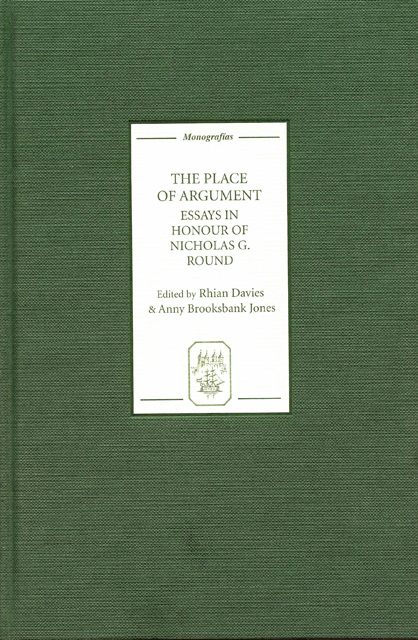Chronicle as Precedent: Some Aspects of Quotation from Late Medieval Chronicles in an Eighteenth-Century Crisis Memorandum
Published online by Cambridge University Press: 10 May 2023
Summary
Among the numerous acute insights offered by Nicholas Round’s study of Álvaro de Luna is his awareness of the significance of the long afterlife of the medieval Spanish accounts of the Condestable, including the work of Michael Geddes (1715), which he describes as ‘an astute, well-documented political biography’, and which might, with good reason, be honoured as one of the earliest serious works of British scholarship concerning medieval Spain (1986: 218, n. 11). The use of medieval Spanish chronicles in later historiography and propaganda in Spain and elsewhere in Europe is, of course, common enough; less well known is the extent to which these texts were exploited in other contexts. An example of this use is a memorandum concerning the appointment and confirmation of bishops, datable to around 1718 (and whose author was therefore roughly contemporary with Geddes, although firmly on the other side of a significant religious divide from the latter), which cites as sources various medieval historical texts both documentary and narrative. The memorandum in question is found in MS 4140 from the library of Sir Thomas Phillipps (1792–1872); entitled on the spine ‘Varios Politica y Gobierno’, this was volume VI of fifteen volumes of ‘Papeles Espagnoles’ [sic], of which the provenance given by Sir Thomas’s printed catalogue is somewhat imprecise (‘Thorpe ex Bibl. de la Serna Santander, Yriarte, et Astorga’). Although the catalogue recognizes only twelve, the MS contains thirteen separate items, of which this anonymous and untitled memorandum of thirty-four unfoliated, unpaginated leaves is the second. The date of this text is established by its author’s allusions to the interval that has elapsed between the significant events of 1482 (when a serious dispute between the Papacy and the Catholic Monarchs over issues arising from the appointment of a bishop to the vacant see of Cuenca gave rise to a concordat between the two parties that governed relations between Crown and Church in this matter for a considerable period thereafter) and the date of writing; he asserts, for example, that ‘con que seria cosa dura, y de gravisima dificultad, que lo que el año 1482.
- Type
- Chapter
- Information
- The Place of ArgumentEssays in Honour of Nicholas G. Round, pp. 31 - 42Publisher: Boydell & BrewerPrint publication year: 2007

